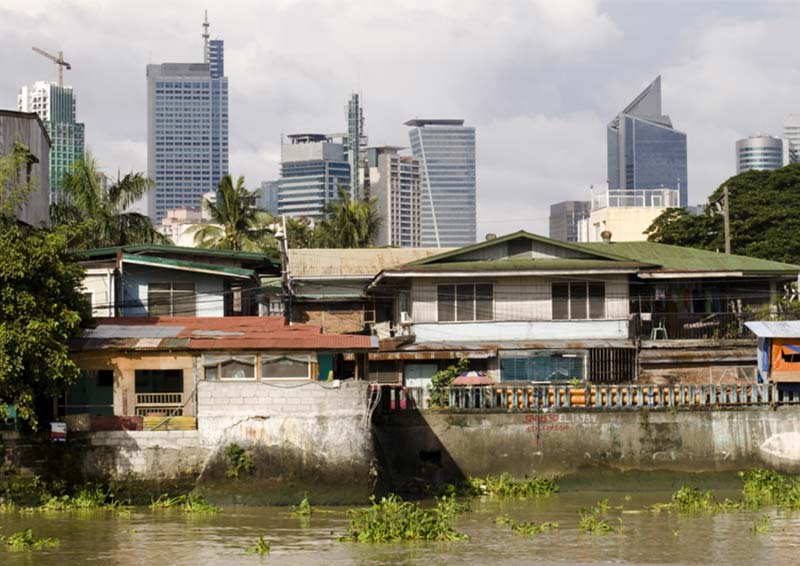Social sustainability vs environmental sustainability
When it comes to infrastructure, are opportunities being missed that could create lasting value for all stakeholders? An article by Mott MacDonald's Davide Stronati.
Contents |
[edit] Introduction
We commonly talk about the three pillars of sustainability – economic, environmental, and social. Yet the social pillar tends to attract the least attention when we’re thinking about infrastructure projects.
Infrastructure is rightly seen as requisite for economic growth, and environmental protection is now seen as fundamental to the progress of projects. This is all as it should be. But rarely is attention paid to who in society benefits most from economic infrastructure.
The reality is that the dividend is unequal and we all know that inequality breeds insecurity – and that poses a fundamental risk to society. At the extremes, it provokes conflict between the ‘haves’ and the ‘have nots’ which can manifest itself in many ways: crime, civil disobedience and even war. It’s clear that the world is a more fragile place when it leaves large sections of society behind in the pursuit of growth.
[edit] We still need environmental sustainability
I am not suggesting that environmental sustainability is no longer important. On the contrary, the link between environmental sustainability and social outcomes is even more crucial when you think of the importance of maintaining an environment for healthy and prosperous lives.
Climate change, air pollution, water quality and availability, ecosystem fragility, species loss – all are issues that impact directly on our health and wellbeing, and thus on society at large. The mass migration of people we’re seeing are not just the result of conflict but also of environmental degradation, the struggle to survive and the desire of people living at the margins to find a better life.
[edit] But we need social sustainability as well
In the infrastructure sector we work towards building the communities of tomorrow and what’s become increasingly clear in recent times is that we have an obligation to provide solutions that are more inclusive and to play our part in addressing inequalities. We need to remember that most, if not all, of what we do is about improving people’s lives.
It’s easy to lay the blame for deepening inequality at the feet of others but all of us in the infrastructure industry – clients, investors, consultants, contractors and suppliers – need to change the way in which we think about projects,and the way we conduct business. We need to help foster more socially inclusive outcomes.
[edit] Delivering UN SDGs for all through infrastructure
In September 2015, the UN launched 17 Sustainable Development Goals (SDGs) to end poverty, protect the planet and ensure prosperity for developed and developing countries alike. Unlike the Millennium Development Goals, which were only for the developing world, the SDGs are for everyone.
Our industry has an obligation to contribute to their fulfilment. Planned and delivered with thought, infrastructure can enable outcomes that help resolve many of the challenges we face as a society today and will face tomorrow.
In July 2018, in order to help us achieve the SDGs ICE’s Sustainability Leadership Team is hosting a half day seminar to showcase leading infrastructure projects that have embedded social value as a key project outcome.
These projects reveal both elegant design solutions that ‘take infrastructure to another level’, and the unexpected opportunities available to our sector from being open to frank community engagement responses.
This article was originally published here on 26 June 2018 by Davide Stronati, Mott MacDonald Global Sustainability Leader.
--The Institution of Civil Engineers
[edit] Related articles on Designing Buildings Wiki
- Articles by ICE on Designing Buildings Wiki.
- Creating strong communities – measuring social sustainability in new housing development.
- How can suppliers practice what they preach on sustainability.
- Social Sustainability at Master-planning Stage.
- Sustainable development.
- Sustainable development: energy challenge.
- Why engineers need to know more about existing infrastructure.
Featured articles and news
UKCW London to tackle sector’s most pressing issues
AI and skills development, ecology and the environment, policy and planning and more.
Managing building safety risks
Across an existing residential portfolio; a client's perspective.
ECA support for Gate Safe’s Safe School Gates Campaign.
Core construction skills explained
Preparing for a career in construction.
Retrofitting for resilience with the Leicester Resilience Hub
Community-serving facilities, enhanced as support and essential services for climate-related disruptions.
Some of the articles relating to water, here to browse. Any missing?
Recognisable Gothic characters, designed to dramatically spout water away from buildings.
A case study and a warning to would-be developers
Creating four dwellings... after half a century of doing this job, why, oh why, is it so difficult?
Reform of the fire engineering profession
Fire Engineers Advisory Panel: Authoritative Statement, reactions and next steps.
Restoration and renewal of the Palace of Westminster
A complex project of cultural significance from full decant to EMI, opportunities and a potential a way forward.
Apprenticeships and the responsibility we share
Perspectives from the CIOB President as National Apprentice Week comes to a close.
The first line of defence against rain, wind and snow.
Building Safety recap January, 2026
What we missed at the end of last year, and at the start of this...
National Apprenticeship Week 2026, 9-15 Feb
Shining a light on the positive impacts for businesses, their apprentices and the wider economy alike.
Applications and benefits of acoustic flooring
From commercial to retail.
From solid to sprung and ribbed to raised.
Strengthening industry collaboration in Hong Kong
Hong Kong Institute of Construction and The Chartered Institute of Building sign Memorandum of Understanding.
A detailed description from the experts at Cornish Lime.

























